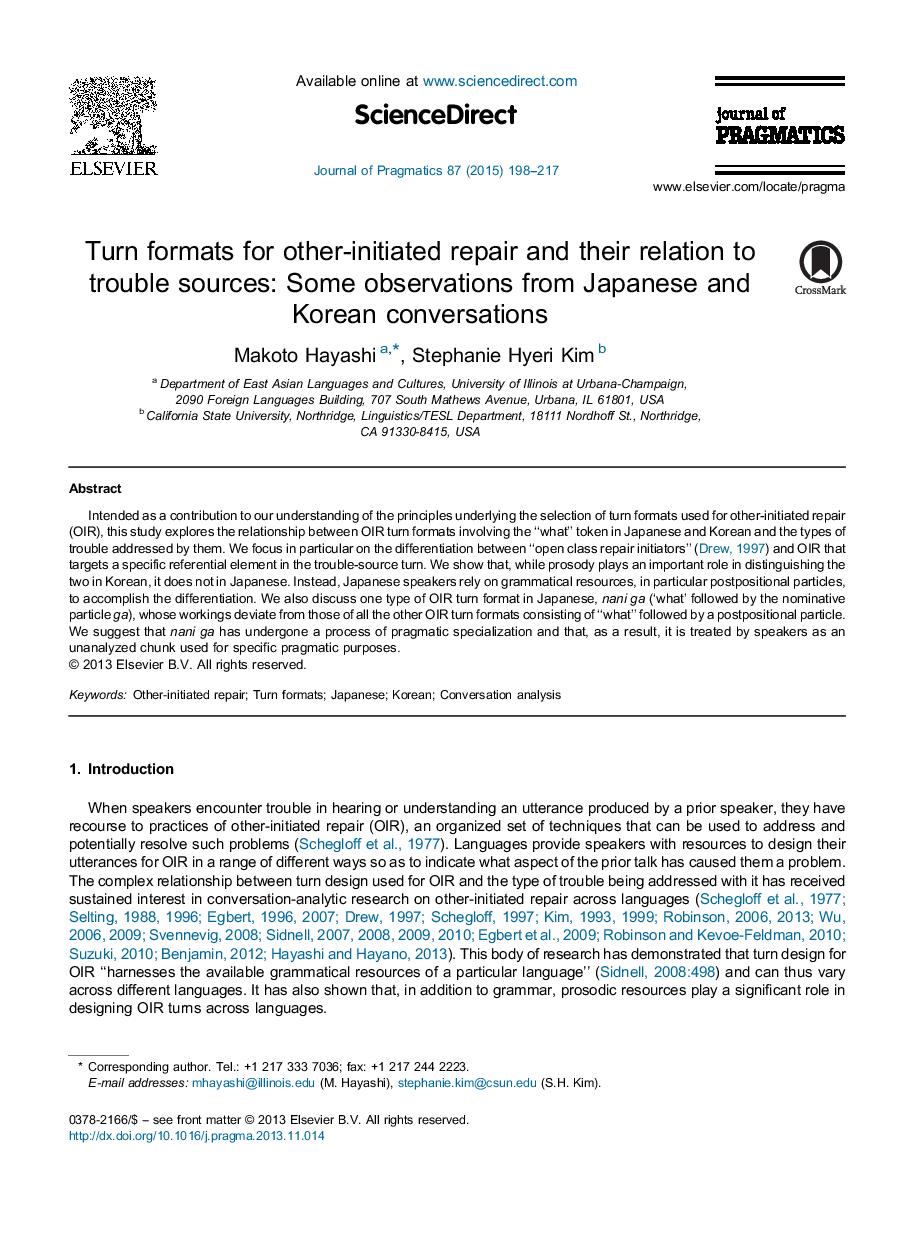| کد مقاله | کد نشریه | سال انتشار | مقاله انگلیسی | نسخه تمام متن |
|---|---|---|---|---|
| 932526 | 1474713 | 2015 | 20 صفحه PDF | دانلود رایگان |
Intended as a contribution to our understanding of the principles underlying the selection of turn formats used for other-initiated repair (OIR), this study explores the relationship between OIR turn formats involving the “what” token in Japanese and Korean and the types of trouble addressed by them. We focus in particular on the differentiation between “open class repair initiators” (Drew, 1997) and OIR that targets a specific referential element in the trouble-source turn. We show that, while prosody plays an important role in distinguishing the two in Korean, it does not in Japanese. Instead, Japanese speakers rely on grammatical resources, in particular postpositional particles, to accomplish the differentiation. We also discuss one type of OIR turn format in Japanese, nani ga (‘what’ followed by the nominative particle ga), whose workings deviate from those of all the other OIR turn formats consisting of “what” followed by a postpositional particle. We suggest that nani ga has undergone a process of pragmatic specialization and that, as a result, it is treated by speakers as an unanalyzed chunk used for specific pragmatic purposes.
Journal: Journal of Pragmatics - Volume 87, October 2015, Pages 198–217
